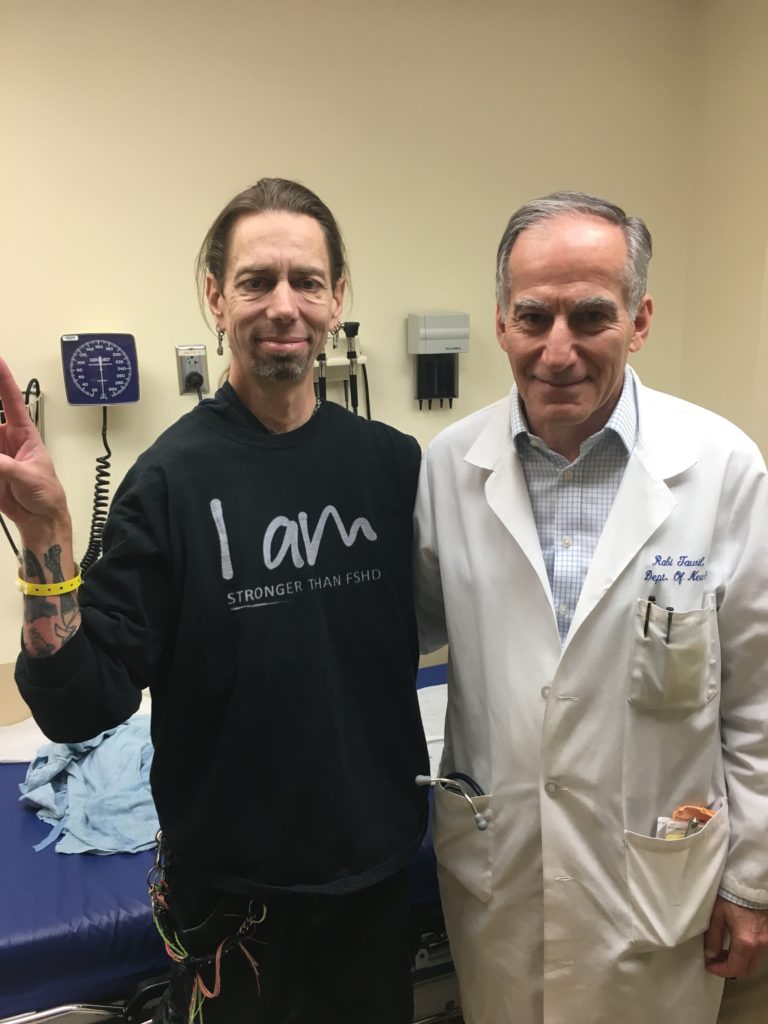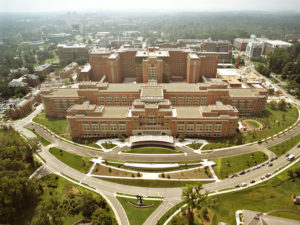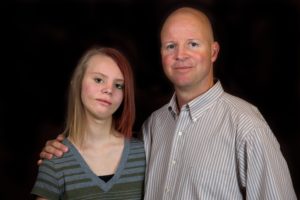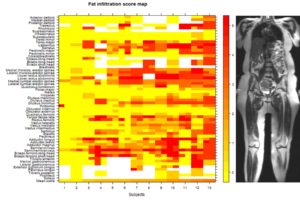
To crack the code of FSHD, patients are absolutely essential
All of the breakthroughs—the discovery of the genetic causes, understanding why some patients vary so greatly in the severity of their symptoms, teasing out the biochemical pathways that could point to future treatments—were made because patients stepped up to the plate.
Too often, we hear patients say they’ll volunteer when there’s a treatment. But we will never get to a treatment unless patients participate in fundamental research now. FSHD is uniquely human, so no laboratory mouse can ever fully model the disease. The genetic “package” that causes FSHD is found only in people. We owe an enormous debt to the patients who give DNA samples. Who submit to long interviews and exhausting physical tests. Allow a surgeon to cut out a small muscle sample. Who fight claustrophobia to lie in the narrow bore of an MRI machine.
Equally important are patients’ family members, both affected and unaffected, who provide the best experimental controls because of their shared genetic and environmental backgrounds. A parent or sibling who has very mild symptoms may hold the key to understanding the factors that protect against the full-blown development of FSHD symptoms in a more severely affected family member.
We are more hopeful today than ever before that a treatment is within sight. We cannot guarantee when that treatment will arrive, but here’s one thing we guarantee: If you volunteer for research, your participation will without question help move us a step closer to that day.
Scientific Overview of FSHD
Read the latest on wikipedia
Glossary of Scientific Terms
NIH funding for Facioscapulohumeral muscular dystrophy sets new record
We have some good news to share on National Institutes of Health funding for FSHD. As part of the FSH Society’s committee work in Washington, DC, we recently received FY2015… Read More »
FSH Society newly awarded grants
The FSH Society has awarded $598,242 in research funds from its August 2015 grant submission cycle. Details of the funded projects can be viewed on this page. These proposals received highest marks from… Read More »
Ultragenyx Pharmaceutical to sponsor FSHD drug development project
Ultragenyx Pharmaceutical Inc., a biopharmaceutical company focused on the development of novel products for rare and ultra-rare diseases, and Saint Louis University’s (SLU) Center for World Health and Medicine, announced that they… Read More »
Whole-Body MRI Yields New Insights
By June Kinoshita (from FSH Watch Fall 2015 issue) Click on image below to view full size. In 2013-2014, the FSH Society funded a study led by Doris Leung, MD,… Read More »





